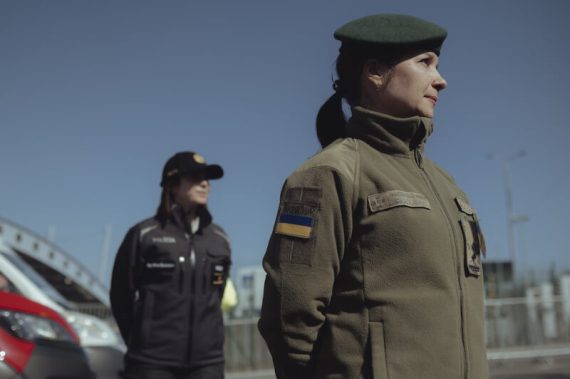I
n a move that took many European leaders by surprise, Slovakia’s newly sworn-in Prime Minister, Robert Fico, announced on October 26, 2023, his government’s decision to discontinue military aid to Ukraine, marking a stark shift in the country’s stance. This announcement comes amidst growing tensions in Eastern Europe and as nations across the continent grapple with the evolving geopolitical landscape.
Robert Fico, leading Slovakia for the fourth time, communicated this change in policy during a session in parliament earlier this week. In the run-up to his recent election, Fico had openly campaigned on the promise of halting military aid to Ukraine, advocating for a more independent foreign policy and stronger border protection against illegal migration.
Fico conveyed to Members of Parliament (MPs) that while Slovakia would cease supplying weapons to Ukraine, the nation would continue to provide humanitarian aid to the war-affected country. The underlying tone of the Prime Minister’s message seemed to pivot towards transforming the European Union from an arms supplier to a mediator, championing the cause of peace in the region.
Slovakia’s new approach, the EU and NATO
Fico’s ascendancy to power has not only redefined Slovakia’s approach towards Ukraine but also towards larger European matters. His administration has expressed opposition to the Western sanctions imposed on Moscow, emphasizing that any such sanctions should only be backed after a thorough analysis of their impact on Slovakia. Fico was quoted saying, “If there are to be such sanctions that will harm us, like most sanctions have, I can see no reason to support them.”
Beyond the pressing matter of military aid, the new Slovakian government’s foreign policy is being keenly observed. Many see Fico’s rise as a potential disruptor to the European Union’s and NATO’s collective strategies, especially in the context of the ongoing conflict between Ukraine and Russia.
Slovakia, a nation of 5.5 million, had been a staunch supporter of Kyiv, particularly since Russia’s invasion in February of the previous year. The country had not only donated arms but had also opened its borders to refugees escaping the conflict.
This pivot in policy direction also highlights the changing political dynamics within Slovakia. The Smer party, chaired by Fico, is part of a three-party coalition government, which also comprises the Hlas party and the Slovak National Party. While Fico is often viewed as a “pro-Russian populist” – especially given his criticism of Ukrainian President Volodymyr Zelenskyy – many within Slovakia believe he is merely prioritizing the nation’s interests over external pressures.
Russia’s allies?
Backing this stance, the coalition partner Slovak National Party (SNS) is no stranger to making headlines. Its chairman and former parliamentary speaker, Andrej Danko, has made controversial remarks in the past, suggesting that the Russian-occupied territories were not “historically Ukrainian.” Danko’s close interactions with Russian dignitaries, including a handshake with Russian President Vladimir Putin and a selfie with Russian State Duma Chair Vyacheslav Volodin, have raised eyebrows in international circles.
While the immediate repercussions of Slovakia’s decision are yet to be fully understood, early reactions from the international community have been a mix of concern and anticipation. Many view this development as a sign of the growing divisions within the European Union, with member states prioritizing national interests over collective decisions. This change is expected to be a prominent topic of discussion at the upcoming EU summit in Brussels, where leaders from across the continent will converge.
On the ground in Ukraine, the halt in military aid from Slovakia adds another layer to the multifaceted challenges the nation faces. Despite this setback, Ukrainian officials remain hopeful that other European nations will continue their support, both in terms of military aid and diplomatic efforts to bring peace to the region.
As Slovakia navigates its new foreign policy direction, Europe and the world will be watching closely. With the balance of power and alliances constantly shifting, Slovakia’s decisions could have ripple effects far beyond its borders.
In conclusion, as the European landscape continues to evolve, nations like Slovakia play a pivotal role in shaping the narrative. The choice to halt military aid to Ukraine may be just one decision, but it underscores the complexities and intricacies of international diplomacy in these tumultuous times. Only time will tell if this decision stands as a beacon of nationalistic prioritization or as a harbinger of a more fragmented European Union.
Sources: Euronews, AFP, Le Monde
Recommended





